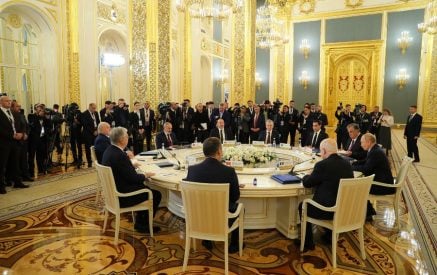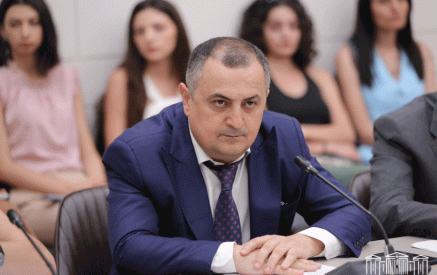1lurer.am. Armenia has become the main beneficiary of Russians’ relocation due to the conflict in Ukraine, Renaissance Capital said in a report on the Armenian economy. Analysts of the investment company forecast the growth of GDP in the country this year to 14%, although at the beginning of the year they predicted the growth of the Armenian economy by 5%.
S&P Global analysts in the report name sharp increase of money transfers from Russia that supported Armenia’s balance of payments, as well as growth of domestic demand due to mass inflow of people among the reasons of the double-digit economic growth this year. In July-September alone, Russians entered Armenia just over 267,300 times.
Because of the influx of Russians, the IT sector has proven to be one of the fastest growing sectors in Armenia. “We see that the IT sector is not that big right now on the scale of GDP, but the state promotes the localization of relocating specialists or IT businesses, which plays into the hands of the country’s economy. We will see strong double-digit growth in this sector,” says Sofya Donets, chief economist for Russia and CIS at Renaissance Capital.
Read also
According to Donets, all hospitality-oriented sectors in Armenia have benefited. “The hotel, restaurant, service and trade sectors are growing up to 30%,” she said. The construction sector also benefited from the influx of Russians: according to Renaissance Capital, the volume of construction will increase by 15%-20% year-on-year. “Despite the influx of Russians, the risks of overheating in this market are restrained, as the state policy is conservative and landlords often treat foreigners more strictly than locals and set higher prices for them,” – said Donets, writes Forbes.
The country’s economy was also supported by increased exports to Russia. According to Renaissance Capital, exports rose 60 percent in the first nine months of 2022, mainly due to the flow to Russia. “Armenia does not violate the sanctions regime, but nevertheless a logistical overhaul has been initiated. Russia is one of the key trade partners for Armenia,” Donets explained.
Donets singled out several reasons why Armenia will show the greatest economic growth among Central Asian and Caucasian countries: “The country has a favorable geopolitical position, its economy is small, and the authorities are making efforts to make sure that newcomers stay.”
Armenia is “starved” of newcomers, says Donets. “The service sector has been underutilized in recent years because of the pandemic. Tourist flow has recovered to pre-pandemic levels, influenced by the influx of Russian tourists, who were limited in choice this year,” the expert shares.
“The country’s double-digit economic growth is a one-time phenomenon,” Donets believes. However, in her opinion, Armenia definitely has a reserve of sustainable economic growth. “It’s all thanks to the economic transformation for doing business, the development of markets, a favorable geographic location and a large reserve for bringing in the unemployed into the workforce,” she explains. Renaissance Capital expects the economy to grow 5 to 7 percent next year.
Anton Tabakh, managing director of macroeconomic analysis and forecasting at Expert RA, also believes Armenia’s economic surge is temporary. “Such economies, due to their size, do not digest people well, so the Russians coming here are unlikely to help the country in the long term,” he said.
The Russians’ move has caused the country’s national currency to strengthen significantly. The exchange rate of Armenian dram has appreciated by nearly 30% from the lows of this year, while currencies of other emerging markets across the board depreciated due to global tightening of financial conditions and deteriorating current account balances, S&P Global said. For example, the euro and pound have depreciated more than 5% this year, as have the currencies of China and India.
Armenia’s annual inflation in October this year was 9.5%, lower than that of Georgia, Uzbekistan, Azerbaijan, Kazakhstan and Moldova. “Such low inflation is caused by the government’s conservative policy,” said Donets.
However, some Russians will eventually want to leave Armenia, which will lead to a slowdown in the country’s economy, the economist said. “There are definitely such risks. And it’s good that no one in the government sees the influx of Russians as a trend. The authorities spent the additional influx of money to reduce the budget deficit and cut the foreign debt. In general, the money received was well spent, and not used to further overheat,” she says.































































